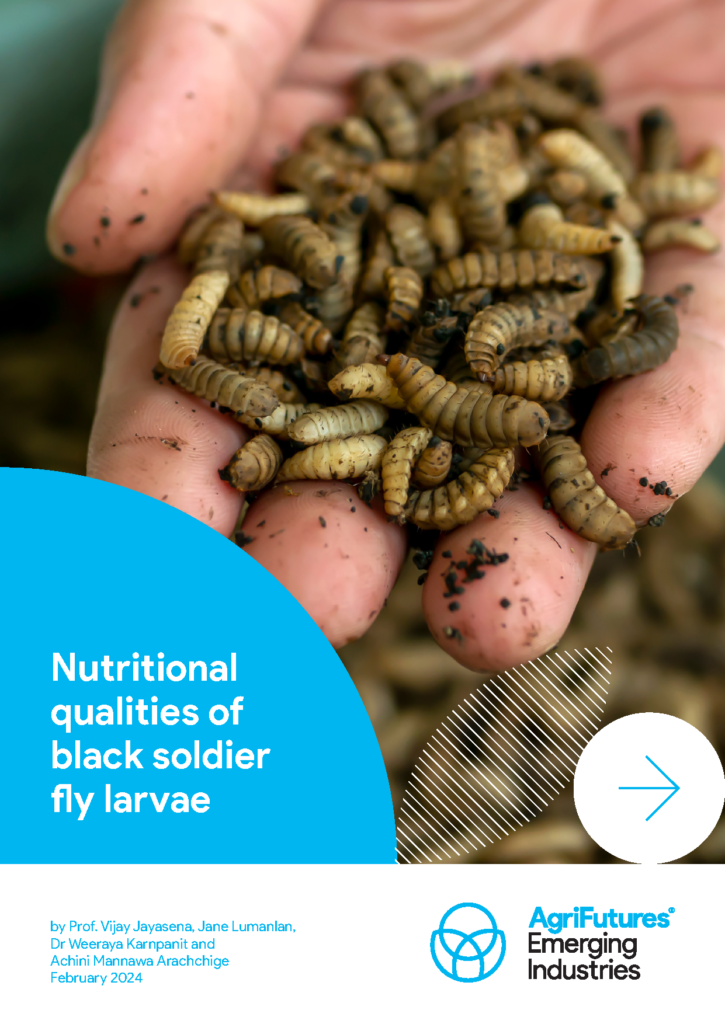The global landscape of food production is evolving, with the edible insect industry emerging as a significant player in addressing nutritional needs and sustainability challenges. While more than two billion people worldwide already incorporate edible insects into their diet, the Australian sector is in its infancy, characterised by a small cohort of growers navigating the absence of industry standards and guidelines.
The utilisation of black soldier fly larvae (BSFL) holds significant promise in addressing these needs, given their rich nutritional composition and potential for value addition. This report delves into three crucial aspects of postharvest processing techniques for BSFL.
The report identifies several strategies to reduce microbial contamination in BSFL postharvest processing, with hot water bath treatments and steaming identified as the most effective means to meet safety guidelines for ready-to-eat foods set by regulatory authorities. By addressing microbial concerns, these methods not only enhance the safety of BSFL products but also extend their shelf life, thereby bolstering their suitability for widespread use.
Building upon the foundational understanding of BSFL’s chemical composition, the research showed that postharvest techniques, including hot air drying, successfully reduced moisture content and water activity, which preserved nutritional integrity and extended shelf life, mitigating conditions conducive to microbial growth. This preservation of nutritional composition will ensure BSFL remains a valuable source of protein, oil and essential nutrients, even during prolonged storage and transportation.
Recognising the need for value addition in the BSFL supply chain, the report identifies optimal fractionation techniques to extract protein, oil and chitin-rich fractions, paving the way for commercial production of high-quality BSFL-derived products. By capitalising on BSFL’s inherent nutritional benefits and versatility, these value-added fractions not only enhance the economic viability of BSFL cultivation but also offer novel ingredients with diverse applications in the food, feed and biomedical industries.
By addressing critical challenges in postharvest processing and value addition, this research contributes to the advancement of sustainable food systems and the promotion of BSFL as a key player in the future of food and feed industries.





